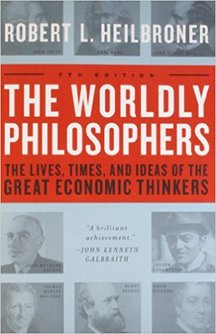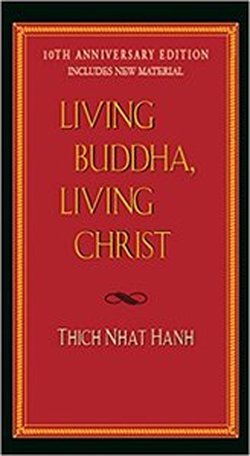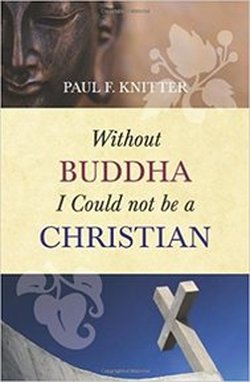
The Worldly Philosophers by Robert L. Heilbroner
Philosophy has been an obsession for me ever since I read Plato's Republic in high school. If you were to ask for my favorite authors, philosophers like Charles Taylor, C.S. Pierce and Nancey Murphy would be high on the list.
Philosophy is intriguing, not for the answers it provides (answers are rare in philosophy), but for the way it sharpens the mind, helps us understand the framework through which we view the world, and aids us in asking better questions. If that sounds abstract, that's because philosophy is abstract (which makes it a lot of fun). But here's where The Worldly Philosophers by Robert Heilbroner is different than your standard philosophy textbook. Instead of focusing on standard philosophy topics like metaphysics (what is real?), epistemology (how do we know?), ethics (what should we do?), or logic (how should we think?), The Worldly Philosophers is concerned with a much more grounded subcategory of philosophy; economics.
In point of fact, economics is not, strictly speaking, philosophy. It is rather a marriage between science and philosophy. Heilbroner calls the great economists worldly philosophers because they "sought to embrace in a scheme of philosophy the most worldly of all of man's activities-his for wealth."
Today we take for granted that economics is a discipline (even if we don't understand what it is), but this was not always the case. There was a time in history when humanity did not have a discipline devoted to predicting supply and demand. Instead, the survival of people groups was assured either by following tradition (do things the way your ancestors did them) or obeying authority (our rulers will whip us if we do not produce enough grain). It was only with the gradual development of the market system, in which individuals could pursue gains however they saw fit, that economics as a discipline became possible.
In The Worldly Philosophers, Heilbroner us on an engaging and enlightening journey from ancient times to the present, tracing the development of economics. The most brilliant aspect of this book is its narrative form. Economics can be confusing, tiresome, or downright boring to those who do not have a general understanding of mathematics. This book tells the story of economics through the lives and contributions of great thinkers like Adam Smith, Parson Malthus, David Ricardo, Karl Marx, Thorstein Veblen and John Maynard Keynes.
Whether you are a business owner looking to brush up on economic theory to stay competitive, or simply an interested consumer who is curious about the unseen forces driving everything from spending habits to international relations, The Worldly Philosophers is a must read!

My interest in Buddhism began in an unusual place. One year out of college, I was living in Indianapolis and working at a Starbucks off 86th Street. One of the regulars. a businessman who came in several times a week, chose a table off to the side and would absorb himself in reading while sipping a darkly brewed, aromatic french press. Eventually I asked him what he was reading and he showed me a Buddhist text. This began an ongoing conversation that lasted throughout my six month career as a barista, and sparked my imagination.
This past year I found myself in Asia on two separate trips and was able to immerse myself in Buddhist culture for the first time. Upon returning, I picked up two books on the relationship between Christianity and Buddhism, including Living Buddha, Living Christ by Thich Nhat Hanh.
Hanh is widely recognized as one of the most influential Buddhists alive today. Born in Vietnam in 1926, he came to the U.S. in the 1960s to teach comparative religion at Princeton University, and was responsible for Martin Luther King Jr.'s stance against the Vietnam conflict. MLK later nominated him for the Nobel Peace Prize, stating "Thich Nhat Hanh is a holy man, for he is humble and devout. He is a scholar of immense intellectual capacity. His ideas for peace, if applied, would build a monument of ecumenicism, to world brotherhood, to humanity."
The premise of Living Buddha, Living Christ is simple: Reality is interconnected. When we live deeply in our own traditions and listen deeply to the traditions of those around us, we find ourselves, and we find each other. As an outsider to Christianity, Hanh offers a fresh perspective on Jesus, the Holy Spirit, and God that can help Christians and post-Christians reconnect with their tradition in a meaningful way. At the same time, he introduces the practice of mindfulness in a way that is accessible to Western minds. Writing about dwelling in the present moment, Hanh states:
"Peace is already there to some extent: the problem is whether we know how to touch it. Conscious breathing is the most basic Buddhist practice for touching peace. I would like to offer you this short exercise:
"Breathing in, I calm my body,
Breathing out, I smile.
Dwelling in the present moment,
I know this is a wonderful moment."
Religion is practice. As we learn to live in the present moment, we become grounded and compassionate, able to give ourselves to whatever person or task is directly in front of us without distraction. Hanh describes Jesus as one who lived exactly as he taught. To be a follower is to do as Jesus did, to live with grace and compassion in the present moment. These are practices that can be shared not only by Buddhists and Christians, but by people of all and no religions as well.
Practicing present moment awareness does not require metaphysical beliefs about the nature of God, reality, salvation or religion, but it does offer a much-needed respite from the chaotic, screen-filled, distraction-ready world we inhabit. Written in simple language that will make it easy for anyone to understand, this peace is what Living Buddha, Living Christ offers us.

Having finished Thich Nhat Hanh's profound ecumenical book on the relationship between Buddhism and Christianity from an outsider perspective, Paul Knitter's book offers an insider perspective that is just as helpful from another angle.
Knitter is a Vatican-trained Catholic theologian whose interest in Buddhism also began in the '60s. Written in a more formal manner than Living Buddha, Living Christ, what is most helpful about this book is Knitter's question and response format. Each topic that is addressed begins with Knitter's struggle to accept "traditional" Christian teachings on the subject, then strays to what Buddhism teaches on the same topic, before returning to the Christian perspective again with fresh perspective gained from Buddhism's insights. In doing so, he keeps with both Buddhist and Christian teachings. A well-known saying from Zen master Ch'ing-yuan Wei-hsin puts it like this:
"Before I had studied Zen for thirty years, I saw mountains as mountains, and waters as waters. When I arrived at a more intimate knowledge, I came to the point where I saw that mountains are not mountains, and waters are not waters. But now that I have got its very substance I am at rest. For it's just that I see mountains once again as mountains, and waters once again as waters."
Catholic author G.K. Chesterton wrote something similar in his book, The Everlasting Man:
"There are two ways of getting home; and one of them is to stay there. The other is to walk round the whole world till we come back to the same place."
The value of Knitter's work is that it gives people who are frustrated and dissatisfied with the answers they have the permission to find insights in the practices of mindfulness and present-moment awareness. Readers of every tradition will be encouraged to become more socially engaged, compassionate, and centered when they experience the humble, nurturing words in this book.
Read any of these books? Leave your thoughts below!
 RSS Feed
RSS Feed
